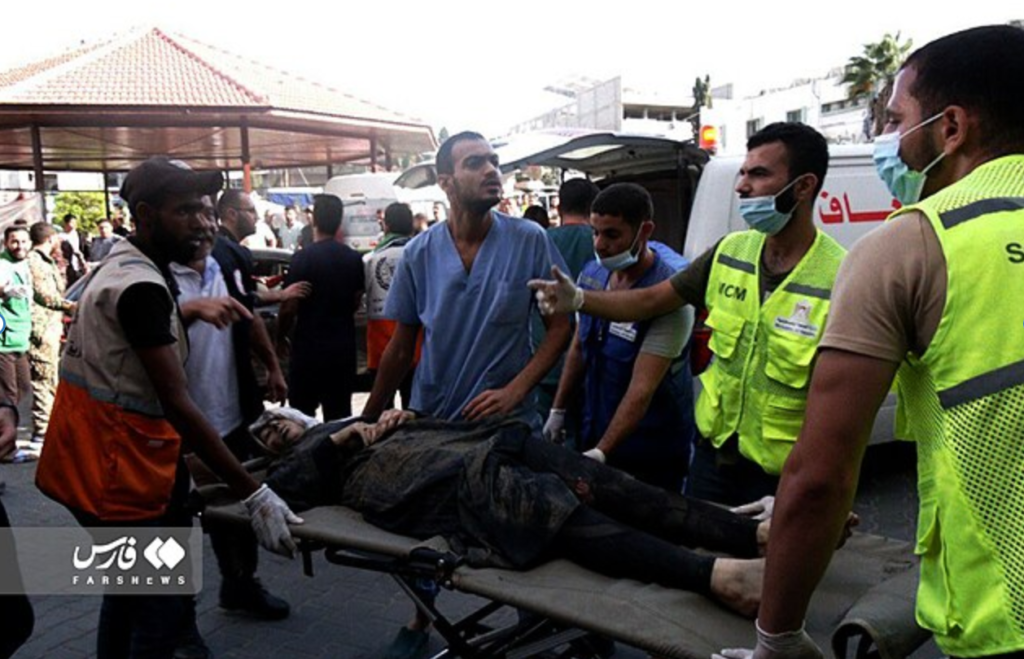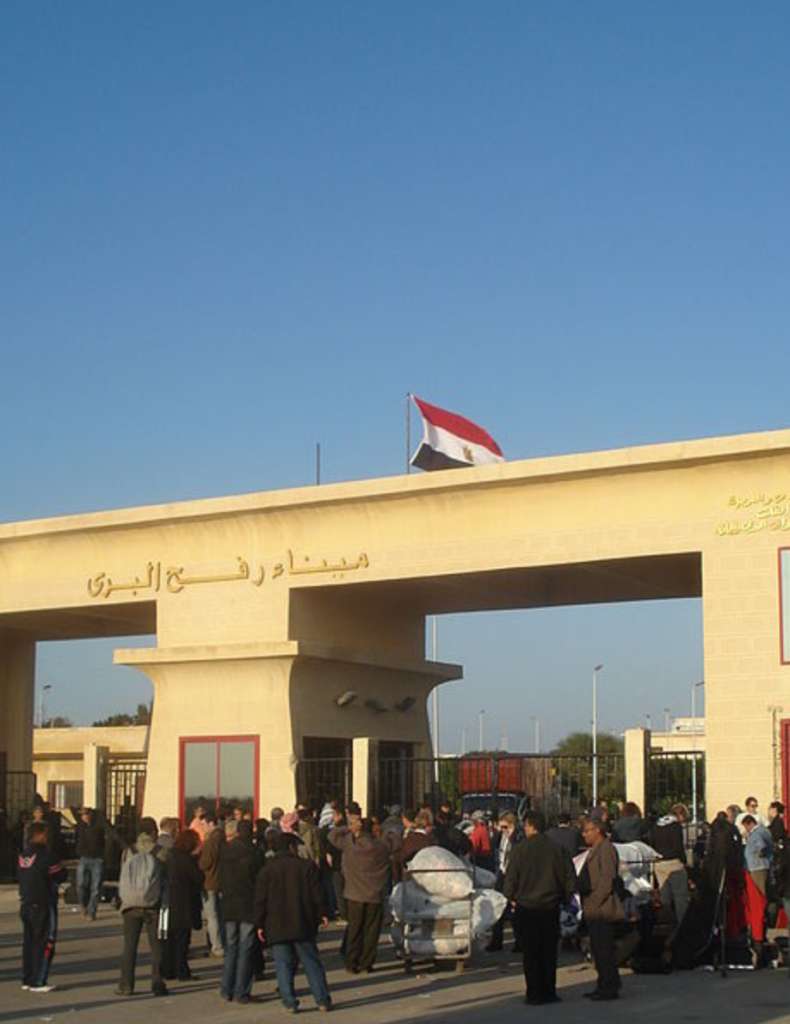Ominous Developments of the Gaza War Likely: Escalation into Regional War, Ethnic Cleansing and Rampant Disease

By: Ghassan Rubeiz / Arab America Contributing Writer
Despite the withdrawal of Israel’s reservists from Gaza and the Supreme Court’s ruling against the controversial, new law of judicial reform, the three-month-old war continues to pose regional and strategic threats. Over the weekend three alarming developments emerged in Gaza: a regional war, a plan to displace Gazans to Egypt, and the spread of infectious diseases.
Emerging Regional War

Last week Lebanon’s Hezbollah and Israel raised the intensity of their exchange of attacks, which has been going on since October 8. Yemen’s Houthis increased their rocket and troop attacks on commercial ships passing through the strategic Bab el Mandeb entrance to the Red Sea. Responding to repeated rocket attacks of anti-Israeli militants from Yemen, US defense forces sank three Houthi armed boats. Israel killed several Iranian, Iraqi, and Syrian soldiers in Eastern Syria by aerial bombardment.
The most serious escalation is now taking place on the Lebanese border with Israel. Prime Minister Netanyahu warned that he has new demands for future border security. After Hamas’ October 7 attack on Israel’s southern border towns, the affected residents were evacuated to safer areas. Israel’s evacuees are now not willing to return to their homes without being assured of safety. About 280,000 Israelis challenge their government’s competence to protect them from their Palestinian neighbors in Gaza.
One would think that the best way to make the borders safe is to create conditions of peace between the people of Gaza and Israel. Regrettably, in Netanyahu’s point of view, safety for his people can best be assured by a stronger fence, a stronger army, and heavier punishment of Palestinians. This explains why Israel has gone too far in trying to dismantle Hamas, only to render the living conditions in Gaza unbearable.
As the mighty Israel Defense Forces make progress in degrading Hamas militarily, Netanyahu is raising a parallel source of fear in his northern border towns. To protect Israel’s residents of the border area from the threat of Hezbollah, Netanyahu demands the retreat of the Lebanese militia from their national borders to the Litani River – some 18 miles away. To back its argument, Israel cites UN Security Council Resolution 1701, which stipulates the absence of armed groups south of the Litani.
There is another water resource complication: Israel has long-eyed hungrily access to the Litani River. Increasing the likelihood of Israel’s accessibility to the Litani is a red line for many Lebanese.
Tension between Hezbollah and Israel has reached a high level. US mediation is currently active to avert a new outbreak of hostilities between Israel and Lebanon’s militias, which include both Hezbollah and armed Palestinian refugees. So far, neither side has been willing to compromise. Dreaming of a crushing victory, Netanyahu calculates that a new Israeli assault on Hezbollah would improve his hold on political power.
It is not hard to imagine the consequences of a new round of an Israeli war with Lebanon. The last one took place in 2006. Lebanon does not need additional stress to go into complete collapse. Despite their current troubled economic conditions, the Lebanese have created a culture of diversity that is unique in the region. Lebanon is still a rich resource of university education for the region, a sophisticated business environment, an impressive infrastructure of tourism, a free press, and a fairly respectable system of national elections.
Netanyahu keeps threatening to turn Beirut to Gaza as if he has done something to be proud of in Gaza. The carnage in Gaza will leave Israelis with a heavy moral burden for years to come.
Iran could enter the war once Hezbollah reaches a point of no return in confronting Israel. And if Iran joins this regional war directly, the US would not hesitate to throw in its full military weight. This scenario is a nightmare.
It is rational for Israelis to be afraid of their future regardless of how close or far they are from the borders. But what ultimately determines Israel’s future security -and prosperity- is to what extent to which Israelis are willing to recognize the injustice they have inflicted on Palestinians.
We now come to the second escalation emerging in Gaza.
Displacement of Gazans to Egypt

Israel’s finance minister, Bezalel Smotrich, wants Israel’s settlers to return to the Gaza Strip when the war ends. He also wants Gaza’s population to emigrate to Egypt. “To have security, we must control the territory,” the minister added.
The above new claims fit in well with Netanyahu’s call for taking over control from the Egyptians at the southern Gaza border crossing. Being in control of the southern gate would make it easier for Israel to “encourage” the cornered people of Gaza to migrate to Egypt.
If Egypt is forced to host hundreds of thousands of Palestinian refugees it will not be easy to maintain its peace treaty with Israel. The same would be true if Jordan were forced to receive more refugees from the West Bank. If either country ends its peace agreement with the Jewish state, the Abraham Accords will become an embarrassment to the UAE, Bahrain, Morocco, and Sudan.
Spread of Disease In Gaza

The World Health Organization warns that illness in Gaza: may ultimately kill more people than Israel’s offensive. Infectious diseases are “soaring,” says the WHO. Over 100,000 cases of diarrhea have been reported, with rates among children 25 times higher than before the war.
UNICEF and many other health and welfare agencies have sounded their alarms about the way babies are “wasting” and pregnancies are disturbed.
Israel’s hawkish policymakers are not concerned about the conditions in which babies are born and raised during this cruel war in Gaza. They blame Hamas for all the consequences of war, even the spread of disease, destruction of hospitals, and unlivable conditions. This denial of responsibility for indiscriminate killing is a telling symptom of a wider outlook of many Israelis toward Palestinians. Some Israelis simply believe there are too many Palestinians.
Fear of the future brings out humanity’s darker side. Hawkish politicians normalize the extreme. For Netanyahu, a 56-year occupation is not too long a period of colonization. Settlers, ruining the life of West Bankers, are the “indigenous citizens of Judea and Samaria”. Apartheid is a way of life to “ensure the safety” of Israeli citizens. To some, the spread of disease is a “fact of life in war”.
It is difficult to know when the international community will run out of patience with Israel, but the possible death of a hundred thousand children in Gaza would shock the world.
Whether it is the threat of a regional war, the consequences of ethnic cleansing, or the spread of epidemics, Israel should not take the risk of continuing this unwinnable war.
For most Israelis, October 7 was a historical event of cruelty, but unfortunately, for a few in higher positions of power, October 7 was an opportunity to control two major threats: Political resistance and Palestinian presence.
Ghassan Rubeiz is the former Middle East Secretary of the World Council of Churches. Earlier he taught psychology and social work in his country of birth, Lebanon, and later in the United States, where he currently lives. For the past twenty years, he has contributed to political commentary and delivered occasional public talks on subjects related to peace, justice, and interfaith. You can reach him at rubeizg@gmail.com
The views and opinions expressed in this article are those of the author and do not necessarily reflect the position of Arab America. The reproduction of this article is permissible with proper credit to Arab America and the author.
Check out Arab America’s blog here!


